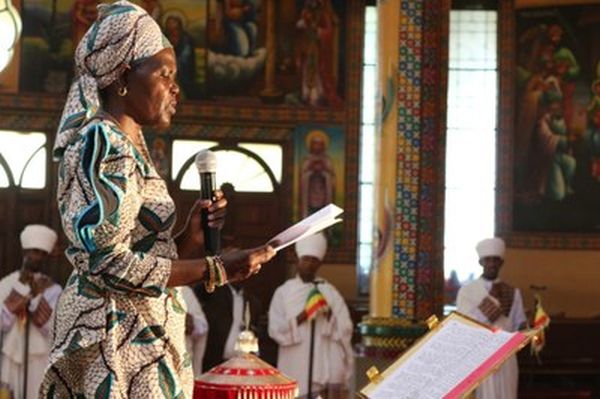

WEEK 2 - Feminization of water poverty in Africa
An African woman’s reflection - Seven Weeks for Water 2017
By Dr Agnes Abuom
Moderator of the WCC’s Central Committee, Dr Agnes Abuom is the first woman and first African to hold this important position. She is also the Executive Director of TAABCO Research and Development Consultants, based in Nairobi, Kenya.
Introduction
As we celebrate International Women’s Day, the world is in crisis. Serious droughts and famines are currently ravaging millions in Africa, particularly in the Horn of Africa. For women and children especially, every minute of this crisis is real and biting. The lack of water is squeezing the health and lives out of men, women and children. It is survival for the fittest! They cannot grow food; their livestock - the mainstay of their livelihoods - are dying in the thousands; they cannot maintain good health. Children cannot stay in school and people cannot continue working. These are the root cause of the crisis and water poverty.
Water and poverty are intricately linked. A lack of clean and safe water and poverty are reciprocally preventing access to consistent sources of clean, water which is crucial to poverty reduction. While Africa comprises 11 per cent of the world’s population, it has approximately 9 per cent of the world’s fresh water resources (World Bank, n.d.a.). Currently, Sub-Saharan Africa faces several water-related challenges that are threatening the livelihoods of its people, especially women and children. This situation is currently deteriorating with climate change.[1] There is big gap in water infrastructure, limited water development and management capacity to meet the demands of a rapidly growing population. This is compounded by Africa having the fastest urbanization rate in the world.[2]
Reflection
The burden of water poverty borne by women, especially in Africa, is immense. Diana M. Pearce, an American sociologist, in 1978, coined the phrase “feminization of poverty”. This concept has become a buzzword for explaining the plight of women all over the world. Feminization of water poverty therefore, may be defined as a phenomenon wherein women, as compared to men, experience water poverty at disproportionately high rates.
In this reflection, I seek to paint the picture of feminization of water poverty in Africa. Across the continent hundreds of millions of rural and the urban-poor women are experiencing adverse effects of the water crisis. Water poverty is manifested in various forms, including lack of sufficient available water; poor accessibility to clean, safe water and proper sanitation; time loss in fetching water; the risk of disease water-related infectious diseases and the resultant deaths. Read further